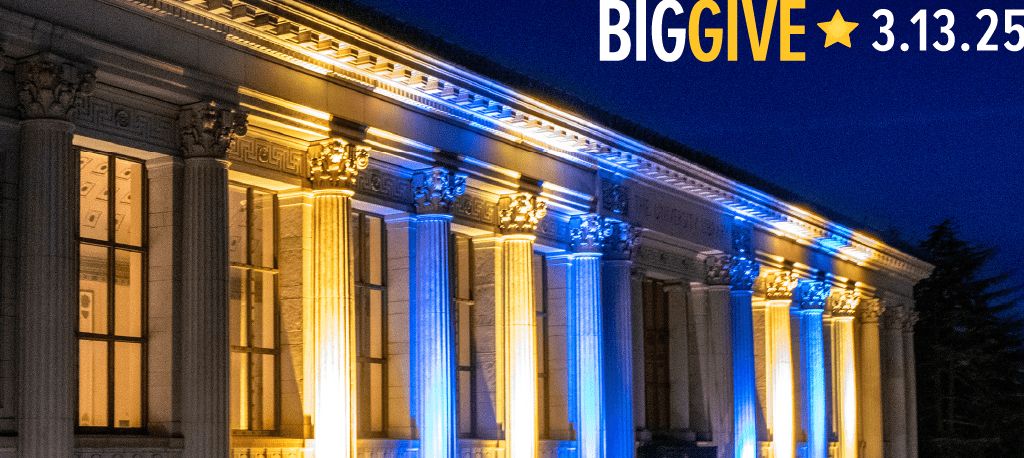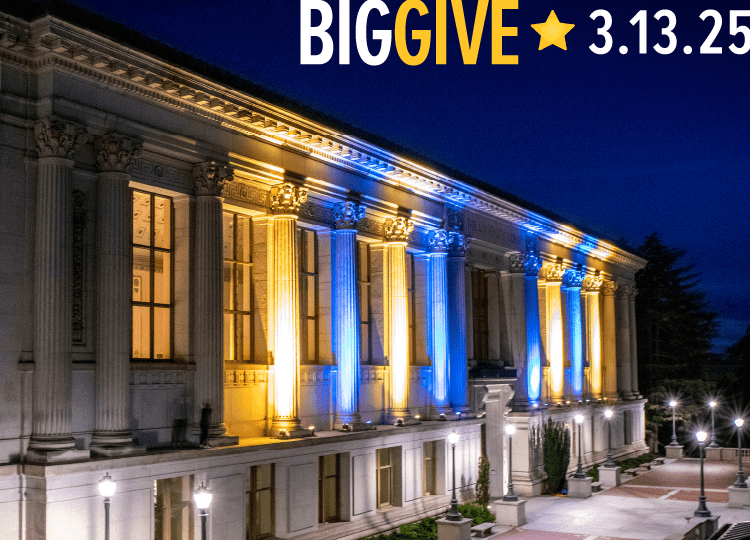In late February, a man named John Schwarz took to social media to issue a rallying cry. “The system has been designed to exploit us,” the self-described mindfulness and meditation facilitator said in a video to his thousands of followers. “On February 28, we are going to remind them who really holds the power. For one day, we turn it off.”
The video, which was shared nearly 700,000 times on Instagram, called for a 24-hour nationwide consumer boycott of major retailers. People around the country jumped on board, targeting major companies like Target, Walmart, McDonald’s, and Meta for such sins as shutting down their diversity, equity and inclusion initiatives.
Despite the social media hype, expert Lawrence Glickman M.A. 89’, Ph.D. ’92 is skeptical that the recent blackout will have any lasting effect on big retailers’ bottom line. But that’s part and parcel for consumer activism, he says, which has a long and storied history in American politics.
“I don’t think [the February 28 blackout] stands a great chance of being a success. I’ll be shocked if in three weeks we’re still talking about it,” he says. “But I’ve been shocked and wrong before. History is full of surprises.”
Glickman, professor of history and American studies at Cornell University, spent his career studying American consumer politics and the history of capitalism and conservatism. While a graduate student at Berkeley, he began researching his first of four books, A Living Wage: American Workers and the Making of Consumer Society, which documents 19th-century Americans’ fight for fair pay. His 2009 book, Buying Power: A History of Consumer Activism in America, traces the lineage of consumer-led dissent, from the Boston Tea Party to the present.
This interview has been edited for length and clarity.

What brought you into the field of consumer activism?
In the 1990s, the standard view of a lot of historians and a lot of intellectuals was that consumer politics was superficial, it was inherently kind of conservative. So I wrote the book Buying Power, which was a history of different forms of consumer activism, starting with the American Revolution and moving through the late 20th, early 21st century.
Consumer politics, like any other form of politics, doesn’t have an inherent progressive or conservative streak. I found, in the course of my research, very conservative boycotts, for example, but also very radical boycotts. Some of the most famous boycotts in our history—the Montgomery Bus boycott or the United Farm Workers grape boycott—have been progressive. But certainly a lot of them have not. My argument is that consumer politics is an American political tradition and that we need to take it seriously.
But we don’t really have a great memory of it in the United States, unlike, say, the Civil Rights Movement, where there’s a lot of emphasis on standing on the shoulders of those who came before us. The next generation often forgets what the previous generation did and reinvents the wheel. In my research, I find the same debates being replayed over and over again.
Do you have a theory about why that is?
My theory is because it’s often denigrated by political commentators as not serious. People [are not] seeing it, maybe, as a tradition worthy of memorialization.
Any idea why it might be a form of protest or activism seen as less serious than others?
I think because a lot of intellectuals say that all the time.
They must be threatened by it in some way.
I do think that’s part of it. I think that for a lot of people coming out of either conservative or left traditions, consumer politics doesn’t fit neatly in the same way as, say, strikes or mass mobilizations of other sorts. Conservatives both believe in the free market and believe in consumer sovereignty, but they also don’t necessarily like the challenge to capitalism that boycotts can sometimes form.
Well, it’s interesting because consumer activism is both a threat to the foundation of American capitalism and also working within the system.
I think that’s right. It gets into a complicated question about, what is capitalism? I dealt with this in my last book on the idea of free enterprise. In the 50s and 60s, when there were a lot of consumer protests by civil rights activists, they said, “We’re just doing what the capitalists tell us to do, which is use our buying power for purposes that serve us well.” And also, “If you claim to be a capitalist, why would you not rent your house to me, or sell your house to me, or let me buy a hamburger?”
There’s also a gender element here.
How so?
Women were generally seen as the shoppers of the family. It was somewhat true, but a stereotype as well. But there was a way in which ceding power to women was dangerous. There were these famous cost of living boycotts in the early part of the 20th century, meat boycotts that lasted through the 1970s. And there was this idea that women were damaging the economy in some way and using their purchasing power, not in the way it was supposed to be—which is directing their husband’s wages towards household goods—but instead politicizing their expenditures.
Being the wrong kind of capitalist?
Yes.
You describe consumer activism as part of the American tradition—which must have changed as our lives and our attention have become increasingly commodified. Could you take me back a bit to the origins of consumer activism and how that differs from what we see now?
First of all, the term [“boycotts”] wasn’t coined until 1880, so it is kind of a modern term, but the practice pre-exists that by a long way. I think that one important difference is that, in the American Revolution for example, the idea oftentimes was that consumption was a kind of performative politics. You were showing what side you were on by not wearing British clothing, boycotting British tea, that sort of thing.
In the 19th century, as America became more of a market society, the issue really became [that] buying a product [was] to assent to the goodness of that product. One of the big boycotts I write about in my book is boycotts by abolitionists of slave-made goods. They argued that, by purchasing goods made with cotton or sugar that were grown and produced by enslaved people, you are essentially hiring enslaved labor. You’re no better than the slave owner because that act of consumption is the essential act.
We saw this with the anti-sweatshop campaigns against Nike in the early 2000s and so forth. The idea was that, by buying Nike products or other companies that use sweatshop labor, you were essentially endorsing that system.
There were great debates about this. William Lloyd Garrison, the great abolitionist, basically said, “I’m going to continue to use sugar to sweeten my tea because the important battle is the political battle I’m fighting.”
Do you think that these kinds of actions have become more performative recently?
Yes, I think the performative is making a comeback. In my book, I made a distinction—I called it “pre-modern consumer politics” and “modern consumer politics.” But now they’re all mixed together. I think there’s a lot of identity politics in consumption, particularly among conservatives in the last ten years or so. In the anti-DEI protests, people were [posting] TikToks of burning their Nike sneakers because Nike had hired Colin Kaepernick as a spokesperson. There was a lot of using consumption or non-consumption as a way of identifying which team you were on.
I’m curious what kind of actions you see as actually having an impact.
I see it largely as a tool to raise political consciousness. For example, now there’s a Canadian boycott of American goods. Well, it’s really hard to measure what that will mean. But I think it is having a political impact in Canada.
The other kind of boycott that I think does work still today—but it’s much rarer than it used to be—are very local and targeted boycotts. In the 1880s, there was a big thing called the labor boycott. It was huge in New York and other cities, especially in working class neighborhoods where local stores’ entire clientele was working class people who lived a few blocks from them. So if you were a bakery or a saloon, and you refused to recognize the union or didn’t raise wages, people in the neighborhood or labor unions would organize a boycott. Those were very, very effective because it wasn’t like you could sell your cupcakes on Amazon throughout the country.
Nowadays, it’s hard to imagine that because even a small business uses e-commerce and other things that make it hard to limit their customer base. So much of it is brand shaming. Companies really don’t want to sully their brand, even if it doesn’t have a huge effect on their bottom line. We saw this in 2023 when the Right went after Bud Light. The PR department there went crazy trying to respond and trying to appease these protesters.
I’m curious about your thoughts on this most recent economic boycott on February 28. I read some criticism that there weren’t clear enough demands or organization, since the blackout arose from a grassroots effort that went viral.
I was following this debate pretty closely for the reasons you say. I put myself in both camps in the sense that I do think that there aren’t too many examples in history of [that type of boycott] working. At the same time, as a historian you never want to predict with great certainty about what will and won’t work.
One of the points I made about the abolitionist boycotts is that everyone, including a lot of abolitionists like Garrison, made fun of these people constantly saying, “This is so stupid. There’s no way this is going to stop slavery.” But my argument was that, over the long term, I think that movement got a lot of people who did not live in states with slavery to think about their relationship to slavery in a way that maybe they hadn’t before.
You mentioned the way everything is commodified, and that often works towards individualizing us and alienating us from other people and from ourselves. So I think that fighting back via consumption can bring some of those things together. [It] gets people thinking about collective action.
At the very least, it might shake us out of our normal routine or make us aware that it’s actually not that hard to not buy from Amazon for a day.
Right, exactly.
If you were to advise someone trying to launch an effective economic boycott or blackout, what would you suggest?
Have some concrete connections to why you’re asking people to do something. That’s where I fault at least this one TikTok that I saw; it was just all over the place. Talking about what kind of power consumer power is and how it connects to other forms of power can be helpful.
I’m really a big fan of pointing to the way that consumption connects to ethics and morality. I think a lot of consumers don’t want to support things, especially unintentionally, that promote causes [they] don’t like or promote systems that are oppressive. Where consumer activism has been successful is trying to lay bare things that advertisers and corporations try to smooth over.
You raise a point about ethics, which can be kind of infuriating and raises questions like, “Is it possible to be an ethical consumer in this system? Is there anywhere I can shop? Do I need to just raise cows on my own farm?”
Those are questions people were asking even in the 19th century. As we moved away from a society of self-sufficient farmers into a market-based society, more and more of us [were] not aware of the providence of the goods we [bought] and the services we [used]. That’s one of the things that consumer politics can do effectively—raise that awareness.



















